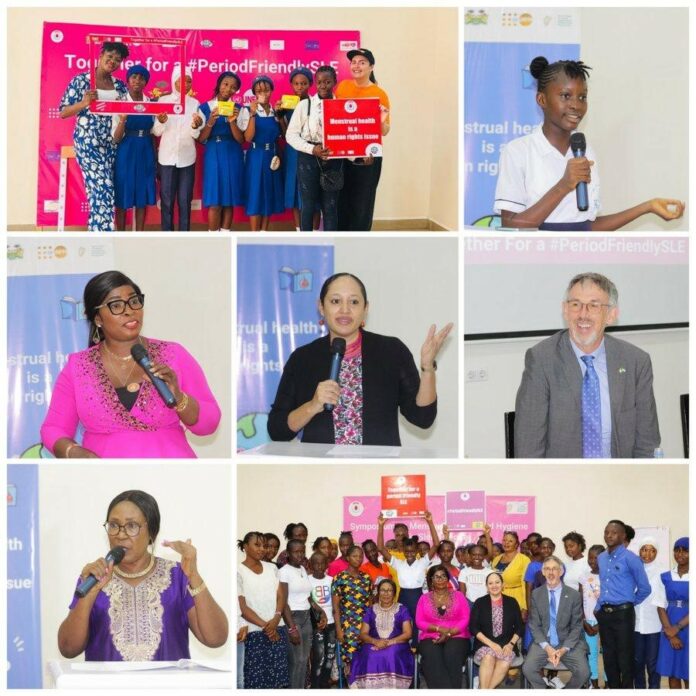By Alhaji Haruna Sani
On May 28, the United Nations Population Fund (UNFPA), in collaboration with the Government of Sierra Leone and the Government of Ireland, celebrated the 10th anniversary of World Menstrual Hygiene Day at the New Brookfields Hotel.
This year’s theme, “Together for a Period Friendly World,” aimed to raise awareness and address issues surrounding menstrual health and hygiene.
The Minister of Gender and Children’s Affairs, Hon. Isata Mahoi, emphasized the critical role of menstrual health in upholding the rights and dignity of girls and women.
She highlighted the need for better access to sanitary products and comprehensive menstrual education. “President Bio is deeply committed to the safety and dignity of women and girls, and our government remains resolute in overcoming the challenges they face,” said Mahoi.
She also stressed the importance of breaking the silence and stigma associated with menstruation in Sierra Leone, noting that education on menstrual health can significantly improve girls’ well-being.
Nadia Rasheed, UNFPA Country Representative, acknowledged the progress made in addressing menstrual health issues in Sierra Leone and thanked various partners for their support.
She pointed out that inadequate hygiene facilities, such as the lack of running water and soap in schools, still pose significant barriers. Rasheed called for enhanced menstrual education as part of sexual and reproductive health programs in schools to empower girls and reduce stigma.
Irish Ambassador Aidan Fitzpatrick praised the event’s significance, asserting that healthy menstrual hygiene is a fundamental human right. He emphasized Ireland’s long-standing support for organizations working on menstrual health, and encouraged open discussions to dispel shame and misinformation about menstruation. “Menstrual education not only improves health outcomes but also boosts young people’s confidence,” Fitzpatrick noted.
Deputy Minister of Basic and Senior Education, Emily Grogra, echoed the need for widespread menstrual health awareness, particularly in schools.
She highlighted that over 20% of girls in Sierra Leone face stigma due to menstruation, calling for collective efforts to break taboos and ensure proper menstrual hygiene management.
The event featured various presentations and panel discussions, with policymakers and stakeholders reiterating their commitment to advancing Sustainable Development Goals related to health, education, and gender equality.
The participants collectively agreed on the need for ongoing efforts to create a period-friendly world where girls and women can manage their menstrual health with dignity and without discrimination.





